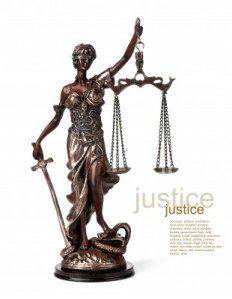Derek Sutton
Joint Senior Clerk
+44 (0) 207 822 7327

Article 6 of the European Convention on Human Rights provides a litigant with a right to a fair and public hearing by an independent tribunal established by law, which must pronounce its judgment publicly. Yet, the rules of sports governing bodies typically provide for the resolution of disputes involving participants in their sports by a private arbitral process. Do such rules involve impermissible derogations from the Article 6 rights of those participants?
This issue was considered by the Court of Appeal in England in Stretford v the FA [2007] EWCA 238. Reference was made in that case to a line of ECHR jurisprudence which decided that, where parties have voluntarily entered into an arbitration agreement, they are to be treated as having waived that part of their Article 6 rights which entitles them to a public hearing. Arbitration was said to be compulsory, as opposed to voluntary, only where it was “required by law”. The Court of Appeal decided that Mr Stretford, a football agent who had agreed (as a condition of being licensed by the FA to undertake agency activities) to be bound in relation to those activities by the FA Rules (including the Rule K requirement that all disputes be submitted to arbitration under the provisions of that Rule), had waived his Article 6 rights to a public hearing. The fact that Rule K had to be agreed to by anyone who wished to have such a licence did not make the arbitration agreement contained within that Rule required by law or compulsory. The FA Rules formed part of a private law relationship, which was regulated by contract.
By way of contrast, the First Civil Law Chamber of the Swiss Federal Supreme Court decided in 2007, on the hearing of an application by the tennis player, Guillermo Canas, to set aside the award of a CAS Panel which had allowed in part only his appeal from the decision of an ATP Anti-Doping Panel, that the player had not, by submitting to the ATP Rules (which included an express waiver of the right to apply to set aside a CAS award in a case involving him), validly waived that right. The Court in that case pointed to the hierarchical structure that existed in professional sports. It contrasted the vertically integrated relationships between athletes and sporting federations on the one hand and the horizontal contractual relationships between two parties on the other. While the latter relationships were generally characterised by parties being on an equal footing, athletes typically had no choice but to submit to a federation’s requirements. Therefore, an athlete wishing to participate professionally in a sport had no choice but to submit to an arbitration agreement where that formed part of the federation’s rules. Since the player in that case was unable to refuse to sign the waiver of the right to apply to set aside a future CAS award, while preserving the possibility of registering in competitions organised by the ATP, the player did not validly waive that right.
That decision did not involve a finding that the arbitration agreement itself was invalid, but such a decision has just been announced (on 26 February 2014) by a first instance court in Munich, in a case involving a German speed skater, Claudia Pechstein. A formal transcript of the judgment of that court is not yet available, but it is apparent that the ruling included the finding (albeit strictly obiter) that the athlete’s agreement to arbitrate was not voluntary (for similar reasons to those articulated in Canas) and that in consequence that agreement was a nullity as a matter of German law.
While that decision is subject to two tiers of possible appeal and this part of the ruling may not need to be considered at any such appeal hearing, it is interesting and potentially significant that a second court has now pointed to the illusory nature of the “voluntary” submission by an athlete to the arbitration rules of his or her federation. I have a good deal of sympathy with these decisions, since there is not in practice a real choice facing a talented athlete, when that choice is between participation or non-participation in his or her chosen field of activity. On the other hand, the fragmentation of litigation in sport which could follow from pursuing this approach to its logical conclusion would in my view be a most unwelcome development. As Sir Anthony Clarke MR observed when giving the judgment of the Court of Appeal in Stretford: “To strike down clauses of this kind because they are incompatible with article 6 would have a far-reaching and, in our opinion, undesirable effect on the use of arbitration in the context of sport generally”. Given the fact that Stretford is a Court of Appeal authority, it is not likely that, in this country at least, a similar approach to that evident in the German and Swiss rulings referred to above will follow any time soon.
Derek Sutton
Joint Senior Clerk
+44 (0) 207 822 7327

Adam Sloane
Joint Senior Clerk
+44 (0) 207 822 7326

Dean Tolman
Deputy Senior Clerk
+44 (0) 207 822 7331

Billy Brian
Deputy Senior Clerk
+44 (0) 207 822 7339

Danny Compton
Deputy Senior Clerk
+44 (0) 207 822 7338

Marc Armstrong
Clerk
+44 (0) 207 822 7330

Adam Fuschillo
Clerk
+44 (0) 207 822 7329

Sophie Reeve
Clerk
+44 (0) 207 822 7324

Joseph Sutton
Clerk
+44 (0)20 7822 0804

Toby Dennison
Clerk
+44 (0) 207 822 7328

Daniel Higgins
Clerk
+44 (0) 207 822 7322

Lilly-Grace Hilliard
Clerk
+44 (0)20 7822 7234
